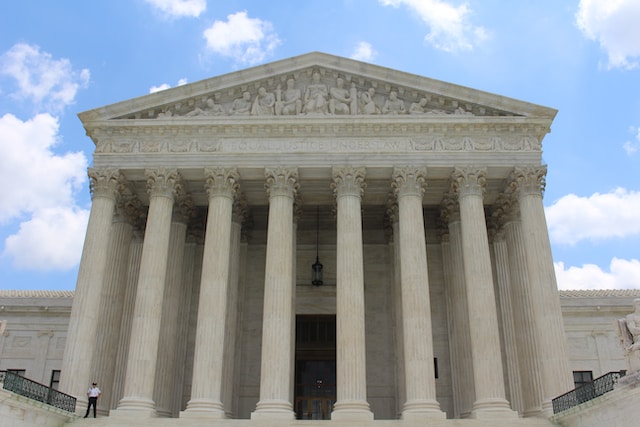 POLICY
POLICY
 POLICY
POLICY
 POLICY
POLICY
The Supreme Court today rebuffed a request to hear an antitrust dispute between Apple Inc. and “Fortnite” publisher Epic Games Ltd.
In 2020, Epic filed a lawsuit against Apple for what it said was anticompetitive behavior. At the same time, the company also launched legal proceedings against Google LLC. Both companies were accused of violating U.S. antitrust laws, something that resonated with those who subscribe to the proposition that Big Tech exploits its power.
Epic claimed that its customers’ inability to make in-app purchases without going through the companies’ app stores and paying 15% to 30% for the transaction was not fair, stating that the tech giants had effectively created a “walled garden.” In a statement, Epic’s lawyers said, “Apple is a monopolist, and standing up to them is a necessary step to free consumers and developers from the unlawful restrictions.”
In December, a federal court ruled in favor of Epic in the Google case, a result Epic said was a “win for all app developers and consumers around the world.” It’s not certain right now what changes Google will make after this verdict, but what was peculiar to some observers was the fact that in the very similar case against Apple, in which Epic also claimed Apple abuses its “monopoly,” the Supreme Court had earlier ruled in favor of Apple.
The rejection to hear the case today may not, on paper, look like it makes sense, although the court must have had its reasons. Apple has had to make some concessions. It was ordered to allow developers to add “calls to action” so consumers could hit links to another payment system. Apple had before relied on what are called anti-steering policies to ensure this wouldn’t happen.
Despite that, today’s ruling is a loss for Epic, and what Epic might feel is a loss to the consumer in general. Apple may lose a fortune in regard to its concession, but for Epic Chief Executive Tim Sweeney, his company’s rebuffed appeal is “a sad outcome for all developers.” The “fight goes on,” he tweeted today, reminding people to exercise “their court-established right to tell U.S. customers about better prices on the web.”
Still, the tenor of his words did not chime with victory. He may be hoping that when the European Union’s Digital Markets Act goes into effect on March 7, Apple’s alleged anticompetitive practices will be further exposed.
Support our mission to keep content open and free by engaging with theCUBE community. Join theCUBE’s Alumni Trust Network, where technology leaders connect, share intelligence and create opportunities.
Founded by tech visionaries John Furrier and Dave Vellante, SiliconANGLE Media has built a dynamic ecosystem of industry-leading digital media brands that reach 15+ million elite tech professionals. Our new proprietary theCUBE AI Video Cloud is breaking ground in audience interaction, leveraging theCUBEai.com neural network to help technology companies make data-driven decisions and stay at the forefront of industry conversations.